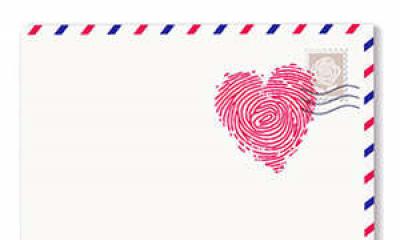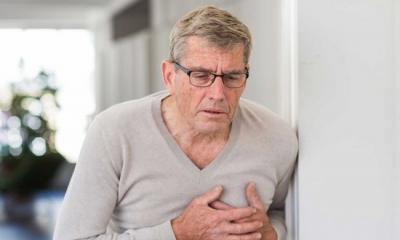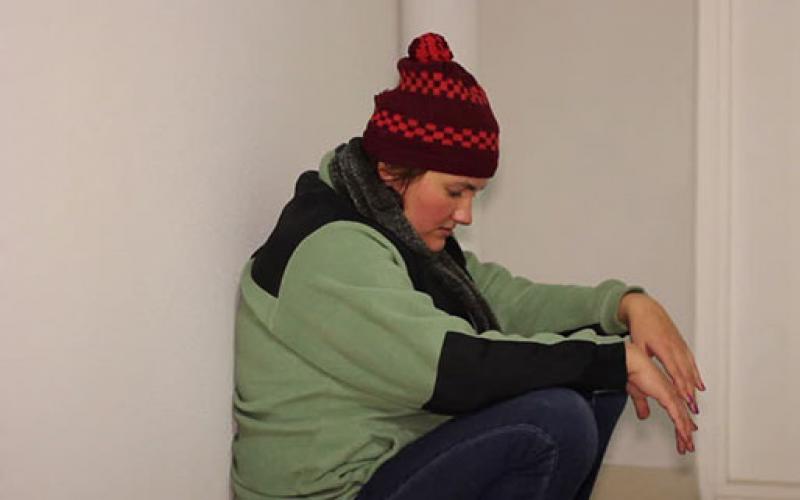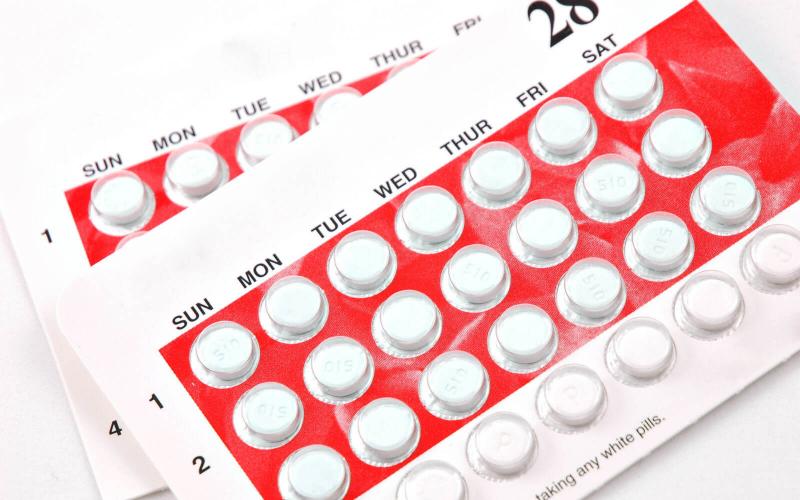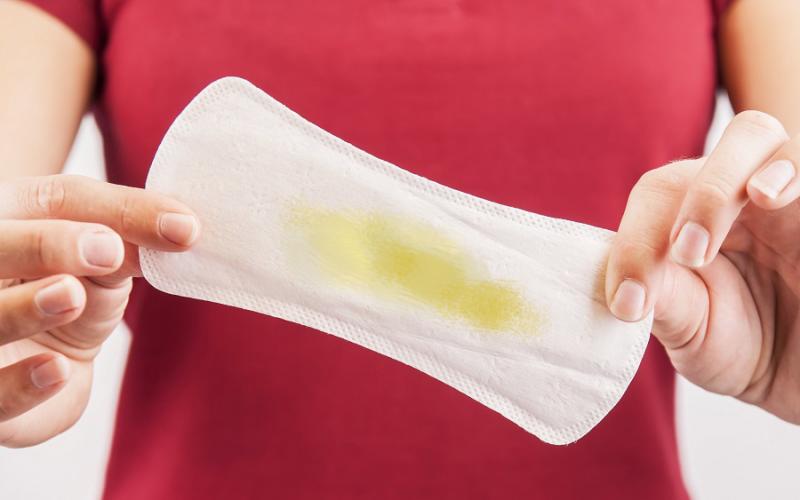The war died down, His bloody harvest. How many years have passed, How many new worries have been experienced! Time rushes forward, Time hurries to new frontiers, But no one is forgotten, And nothing is forgotten forever! The war died down, His bloody harvest. How many years have passed, How many new worries have been experienced! Time rushes forward, Time hurries to new frontiers, But no one is forgotten, And nothing is forgotten forever!
The beginning of the war. The beginning of the war. The beginning of the war. The beginning of the war. Battle for Moscow. Battle for Moscow. Battle for Moscow. Battle for Moscow. Leningrad blockade. Blockade of Leningrad. Blockade of Leningrad. Blockade of Leningrad. A radical turning point in the course of the war (Stalingrad and Kursk battles). A radical change in the course of the war (Battles of Stalingrad and Kursk). A radical change in the course of the war (Battles of Stalingrad and Kursk). A radical change in the course of the war (Battles of Stalingrad and Kursk). Victory. Victory. Victory.




On August 30, the battle for Moscow began. The Germans managed to approach the city at 20-25 km. Only the heroism of ordinary warriors saved the situation. 28 Panfilov heroes stopped 50 German tanks, sacrificing themselves. V. Pamfilov. The feat of the Panfilov guards. Battle for Moscow



I. Nikolaev. Leningrad. Winter Line for bread. In September 1941, the blockade of Leningrad began, which lasted 900 days. The inhabitants of the city received a year of bread a day, but continued to fight and work, turning out the products needed by the front. The "Road of Life" was laid on the ice of Ladoga. In September 1941, the blockade of Leningrad began, which lasted 900 days. The inhabitants of the city received a year of bread a day, but continued to fight and work, turning out the products needed by the front. The "Road of Life" was laid on the ice of Ladoga. Leningrad blockade

Despite the difficulties, the city tried to live a normal life. The blockade claimed the lives of hundreds of thousands of Leningraders, but the city survived and on January 18, 1944, the Red Army finally lifted the blockade. V. Serov, I. Serebryany, A. Kuznetsov. Breaking the blockade of Leningrad on January 18, 1943. Leningrad blockade








There is no war in the history of mankind more cruel and terrible than the Great Patriotic's! There is no feat in history more striking and immortal than the indomitable courage of a soldier of Victory. Let us bow to the blessed memory of the soldiers of the Fatherland who fell in battle!






Answer the questions: What is patriotism? What is patriotism? Do you consider yourself a patriot? Do you consider yourself a patriot? What time do you think patriotic feelings are most clearly expressed in a person? What time do you think patriotic feelings are most clearly expressed in a person? How do you understand what war is? How do you understand what war is? Why Great Patriotic War got that name? Why did the Great Patriotic War get such a name? Who are the fascists? Who are the fascists? Why did our army win? Why did our army win? Tell about exploits Soviet people during the Great Patriotic War Tell about the exploits of the Soviet people during the Great Patriotic War Lesson summary

1. Choose the correct answer: The commander under whose command decisive victories were won in the Great Patriotic War: a) A. Suvorov; b) G. Zhukov; c) M. Kutuzov. 1. Choose the correct answer: The commander under whose command decisive victories were won in the Great Patriotic War: a) A. Suvorov; b) G. Zhukov; c) M. Kutuzov. 2. When did the Victory Parade take place on Red Square? a) May 9, 1945; b) June 24, 1945; c) September 2, 1945. 2. When did the Victory Parade take place on Red Square? a) May 9, 1945; b) June 24, 1945; c) September 2, 1945. 3. On the site of which Russian city, on the orders of Hitler, was the sea supposed to appear? a) Leningrad; b) Moscow; c) Smolensk. 3. On the site of which Russian city, on the orders of Hitler, was the sea supposed to appear? a) Leningrad; b) Moscow; c) Smolensk. 4. So in our history they call wars in which the fate of the motherland, the Fatherland was decided: a) domestic; b) civil; c) global. 4. So in our history they call wars in which the fate of the motherland, the Fatherland was decided: a) domestic; b) civil; c) global. Final test

Where did the Red Army inflict the first defeat on the Nazis? a) on the Kursk Bulge; b) when breaking the blockade of Leningrad; c) in the Battle of Moscow. 6. Underline the superfluous: a) the Battle for Moscow; b) the Battle of Stalingrad; c) Battle of Kulikovo. 7. Restore the sequence of events by placing the numbers from 1 to 4: End of World War II ____ End of World War II ____ Battle of Stalingrad. ____ Battle of Stalingrad. ____ Capture of Berlin. ____ Capture of Berlin. ____ Breaking the blockade of Leningrad. ____ Breaking the blockade of Leningrad. ____ Final test

8. Match (draw arrows):* 8. Match (draw arrows):* Kursk Bulge Battle for Moscow Siege of Leningrad Beginning of the Great Patriotic War Defenders of the Brest Fortress The largest tank battle The feat of the Panfilov guards Road of Life 8888 Final test


1. Choose the correct answer: The commander under whose command decisive victories were won in the Great Patriotic War: a) A. Suvorov; b) G. Zhukov; c) M. Kutuzov. 1. Choose the correct answer: The commander under whose command decisive victories were won in the Great Patriotic War: a) A. Suvorov; b) G. Zhukov; c) M. Kutuzov. 2. When did the Victory Parade take place on Red Square? a) May 9, 1945; b) June 24, 1945; c) September 2, 1945. 2. When did the Victory Parade take place on Red Square? a) May 9, 1945; b) June 24, 1945; c) September 2, 1945. 3. On the site of which Russian city, on the orders of Hitler, was the sea supposed to appear? * a) Leningrad; b) Moscow; c) Smolensk. 3. On the site of which Russian city, on the orders of Hitler, was the sea supposed to appear? * a) Leningrad; b) Moscow; c) Smolensk. 4. So in our history they call wars in which the fate of the motherland, the Fatherland was decided: a) domestic; b) civil; c) global. 4. So in our history they call wars in which the fate of the motherland, the Fatherland was decided: a) domestic; b) civil; c) World Final Test

5. Where did the Red Army inflict the first defeat on the Nazis? a) on the Kursk Bulge; b) when breaking the blockade of Leningrad; c) in the Battle of Moscow. 6. Underline the superfluous: a) the Battle for Moscow; b) the Battle of Stalingrad; c) Battle of Kulikovo. 7. Restore the sequence of events by placing the numbers from 1 to 4: End of World War II ____ End of World War II ____ Battle of Stalingrad. ____ Battle of Stalingrad. ____ Capture of Berlin. ____ Capture of Berlin. ____ Breaking the blockade of Leningrad. ____ Breaking the blockade of Leningrad. ____ 567 Final test

5. Where did the Red Army inflict the first defeat on the Nazis? a) on the Kursk Bulge; b) when breaking the blockade of Leningrad; c) in the Battle of Moscow. 6. Underline the superfluous: a) the Battle for Moscow; b) the Battle of Stalingrad; c) Battle of Kulikovo. 7. Restore the sequence of events by placing the numbers from 1 to 4: End of World War II __4__ End of World War II __4__ Battle of Stalingrad. __1__ Battle of Stalingrad. __1__ Capture of Berlin. __3__ Capture of Berlin. __3__ Breaking the blockade of Leningrad. __2__ Breakthrough of the blockade of Leningrad. __2__ 567 Final test

8. Match (draw arrows):* 8. Match (draw arrows):* Kursk Bulge Battle for Moscow Siege of Leningrad Beginning of the Great Patriotic War Defenders of the Brest Fortress The largest tank battle The feat of the Panfilov Guards Road of Life 8 Final test

Description of the presentation on individual slides:
1 slide
Description of the slide:
A lesson in courage Prepared by Smirnova T.A., primary school teacher at the Nikolskaya secondary school in 2016
2 slide
Description of the slide:
Purpose: acquaintance with new information about the Great Patriotic War, with the fate of children-heroes. Theme: Courage of our people.
3 slide
Description of the slide:
We are the children of peacetime. We do not know the word war. But we remember the victories of our grandfathers, And we inherit their courage. Thank you grandfathers for the sun beam. Thanks for the nightingale's trill in the spring, That bullets don't whistle overhead, That we don't lose our fathers in battles.
4 slide
Description of the slide:
What is courage? Courage is courage, the presence of mind in danger. Courage is a moral quality of a person, expressed in the ability to act decisively in a dangerous situation. Our grandfathers and great-grandfathers defended the Motherland without sparing themselves, their lives, not for the sake of awards. All their thoughts were focused on victory. In the difficult situation of the war, hungry, tired, wounded - they did not think about themselves.
5 slide
Description of the slide:
On February 23, we celebrate Defender of the Fatherland Day, the day of courage, heroism and patriotism of our people.
6 slide
Description of the slide:
There are wars on earth. Even now, when we live under a peaceful sky, somewhere there is a war and people are dying. And in our native land more than once there were battles.
7 slide
Description of the slide:
The terrible war against the fascist invaders, the victory in which we celebrate from year to year on May 9, lasted almost 48 months (4 years). Children also participated in the war along with adults. We call them child heroes, pioneer heroes. They accomplished a feat, showed courage and courage in the struggle for the liberation of the Motherland. Before the war, they were ordinary guys who bred pigeons, flew a kite, played pranks, and helped adults. But then the war started...
8 slide
Description of the slide:
Valya Kotik When the war began, Valya was 10 years old. Together with friends, he decided to fight the enemy. The guys collected weapons at the site of the fighting, which were then transported in a cart of hay to partisan detachment. When arrests began in the city, Valya, along with his mother and brother Viktor, went to the partisans. The boy, who at that time was only fourteen years old, fought shoulder to shoulder with adults, freeing his native land. On his account - six enemy echelons blown up on the way to the front. Valya Kotik was awarded the Order of the Patriotic War, 1st class, and the medal "Partisan of the Patriotic War," 2nd class. Valya Kotik died as a hero, and the Motherland posthumously honored him with the title of Hero Soviet Union. A monument was erected in front of the school where he studied.
9 slide
Description of the slide:
Marat Kazei In the autumn of 1941, Marat was supposed to go to the fifth grade, but the Nazis broke into the village where he lived, and turned the school building into their barracks. Marat's mother was hanged for helping the partisans. Together with his sister Ada, the boy went to the partisans in the forest and became a scout. Penetrated into enemy garrisons and delivered valuable information to the command. Participated in battles, mined the railway. For courage and bravery he was awarded the Order of the Patriotic War of the 1st degree, medals "For Courage" and "For Military Merit". Marat died in battle. He fought to the last bullet, and when only one grenade remained, he let the enemies get closer and blew himself up along with them. For courage and courage, Marat Kazei was awarded the title of Hero of the Soviet Union. A monument to the young hero was erected in the city of Minsk.
10 slide
Description of the slide:
Zina Portnova The war found her in the village, where Zina came for the holidays (near the Obol station). In Obol, an underground organization "Young Avengers" was created, and the girl was accepted as a member of the committee. On the instructions of the partisans, she posted leaflets, learned to shoot accurately, went to reconnaissance, got a job in a canteen and poisoned a group of Nazis. Zina was betrayed by a traitor. She was tortured for a long time, but she remained silent. During one of the interrogations, Zina grabbed a pistol from the table and shot at the Gestapo point-blank, killed another fascist who had come running to the shots. She tried to run, but was unsuccessful. The brave young pioneer was brutally tortured, but until the last minute she remained steadfast and courageous. For her feat, Zina Portnova was awarded the title of Hero of the Soviet Union.
Purpose: to form an idea of courage, duty, honor, responsibility, morality, understanding that without patriotism it is impossible to lead Russia to revival.
Tasks:
1) to acquaint with the heroic and tragic pages of the history of the Fatherland;
2) educate young people to respect veterans, the exploits of military personnel, defenders of the Fatherland, awareness of the need to perpetuate the memory of fallen heroes;
3) to promote the formation of readiness among young people to defend the Motherland.
Preparation stage:
1) study of information on the issues: "The Great Patriotic War", "Afghan War", "War in Chechnya".
2) diagnostics of class students: “What is he like, a patriot modern Russia?»
3) drawing up a presentation.
Equipment: computer, multi-projector, statements of great people about heroism, nobility: “Oh, noble feeling, sanctified feeling!
Possess forever the hearts of Russians!..” (F.N. Glinka)
"A noble man knows only duty, low
man knows only profit.” (Confucius)
II. Determining the theme of the class hour
(Slide #2)
Courage is not fashion
fast, fast,
Courage - essence of a man,
Strong, durable, eternal.
If a grain of courage
Make friends with the soil.
Will ripen at the time of ripeness
A grain of ear of courage.
Teacher:
Guys, how do you understand the lines of this poem?
(student response)
Teacher:
Tell me, please, what do you think courage is and what kind of person can be called courageous?
(student response)
III.
Teacher: - So, guys, as you may have guessed, today we will talk about courage. Please name the events when the people of our country had to be especially courageous.
Students:
During the Great Patriotic War, during the war in Afghanistan and Chechnya.
Teacher: (Slide number 3)
Let's remember these wars.The date of February 15 in Russia is declared the Day of Remembrance for the Russians who performed their official duty outside the Fatherland. Many of you do not know that heroic people live next to us, who risked their lives for the sake of peace on Earth, so that we could sleep peacefully, study, work, and enjoy life.
Today Classroom hour we dedicate to the soldiers who served and died in military events outside the Fatherland.
Student 1.: (Slide number 4)
The Great Patriotic War began on June 22, 1941 and ended with the victory of our people on May 9, 1945. Our people won at a high price. Almost four years, 1418 days, there was a war. These were years of deprivation, grief, hard work. Cities and villages were devastated, fields were burned, the dreams and hopes of the Soviet people were torn off. Boys and girls went to the Front as soon as they finished school. More than 7 million people died in Russia. At the same time, these were years of courage, selfless love for the Motherland.
Student 2.: (Slide number 5-9)
After the Second World War, Afghanistan, which had the status of a neutral state, was actually in the sphere of Soviet influence. The decision to send troops to Afghanistan was made on December 12, 1979. February 15, 1989 was the day when the count of the losses of our soldiers, officers and employees ended. And the result is sad. More than 13 thousand mothers and fathers did not wait for their sons, they did not hear: “Mom, I have come ...” In the vast majority of them, the “limited contingent” in Afghanistan was young people who got into the war almost from school. People who had almost no life experience suddenly found themselves in a foreign country, in an unusual hostile environment, in extreme circumstances.
Student 3.: (Slide number 10)
The war in Afghanistan ended for our soldiers, but already in December 1994 a new, no less bloody war began in Chechnya. We know a lot about this war, but there are episodes that we will never know about. In this war, our soldiers died - 18-20-year-old boys who had recently studied in our schools, which, perhaps, some of us knew "
Student 4.: (Slide number 11-12)
How often do we see from the screen
Plots, reports about Chechnya,
How the bullets whistle over their heads,
Soldiers do not sleep for days and nights,
Fighting for the Motherland in the war.
And the heart stops again
From the groan of young guys,
When in battle the damned machine gun
Their lives will suddenly, blindly end,
And they lie dead in the dust.
But somewhere wounded, losing strength,
Afraid of becoming a cripple at 20,
After all, mines mercilessly deprive legs,
And the bullets pierce the body
That even the spirit is not enough to scream.
And thoughts run through his mind,
How will mother and father suffer,
That he won't see his girlfriend
And the thought that someone will hear.
I want to live. I don't want to die so early.
And they will take away their wounded to the medical unit,
And later they will be sent to the hospital.
And doctors will be there to save soldiers
Sometimes regretting that they do not know how to heal
Teacher: (Slide number 13 - 14)
According to official figures, about 6,000 Russian servicemen, border guards, police officers and security service personnel died or went missing in Chechnya. Echelons of boys were taken to the south "to do their duty." Hastily trained, they fell into such a bloody massacre, which they did not even suspect.
The second Chechen war began after the invasion in August 1999. Chechen detachments of Shamil Basayev and Khattab to Dagestan. By the end of 2000 Russian losses amounted to 3 thousand dead and missing.
Now, when both Chechen campaigns are over, their participants have returned home, got a job, and some managed to start families. But, one way or another, each of them is still haunted by the war, everyone needs social, legal, psychological and medical support. Therefore, it is not surprising that these guys decided to unite in order to help each other, informing them to solve emerging problems. This is how a public-patriotic organization of participants in hostilities appeared on the territory of the Chechen Republic and in other hot spots ..
IV. Teacher: (Slide number 15)
Summarizing.
There was a war, there was a victory. And for the fact that our boys know about the war only by hearsay, we can also say thanks to our veterans who experienced all the hardships of the war and survived, having won the victory.
Throughout our long-suffering land, in cities and villages, along the roadsides, we see mass graves, majestic monuments and just small slabs.
Student:
(Slide number)
Wherever you go, wherever you go,
But stop here
Tomb this road
Bow down with all your heart
For you and for me
He did everything he could...
He did not spare himself in battle,
And saved the Motherland.
Through the years we see
partisan trail,
pierced by bullets
Naroch pine.
sudden attacks,
Ambush under the pines
Grave mounds
Over dewy herbs.
And loyalty and courage
And grief at the conflagration
You fell for your country
You are with us, comrades.
We will be the same
In any test
We swear!
We swear a moment of silence
The event is dedicated to those who served and died in military events outside the Fatherland.











































 Back forward
Back forward
Attention! The slide preview is for informational purposes only and may not represent the full extent of the presentation. If you are interested in this work, please download the full version.

Explanatory note
Courage Lesson
Dedicated to the memory of the heroes of the Great Patriotic War.
Purpose: education of patriotism, love for one's Motherland, Fatherland.
Tasks: to reveal to children the meaning of celebrating Victory Day, to show that the Great Patriotic War was a war of liberation, to help instill a sense of patriotism, love for their Motherland using the examples of participants in the Great Patriotic War, to help instill in children respect for all who defended the Motherland from fascism.
Scope: Lesson of Courage.
Forms and methods of implementation: lesson and presentation.
Age groups: 8-10 years old.
Expected results: activation of students' education in the field of patriotic education of children and youth.
For you who are not yet 16….
For those of you who don't know what war is...
Dedicated
To remember...
To understand...
Even then we were not in the world,
When fireworks thundered from end to end,
Soldiers, you gave the planet
Great May, victorious May! (Slide number 1)
Host: Today we are holding a holiday dedicated to the significant date of the Victory of the Soviet people in the Great Patriotic War.
Honored guests are invited to our holiday: your grandparents who survived this war.
The floor is given to Nikulichev V.S. (Slides #2-12)
The country flourished. But the enemy from around the corner
He made a raid, went to war with us.
In that terrible hour;
Becoming a steel wall
All youth took weapons
To defend the Fatherland.
Host: On June 22, 1941, at 4 o'clock in the morning, without presenting any claims against the Soviet Union, without declaring war, German troops attacked our country, attacked our borders in many places and bombed our cities from their planes.
The recording of the song "Holy War" sounds.
Forty-first! June.
Year and month of nationwide struggle.
Even the dust of time
This date cannot be delayed.
The country was rising
And went to the front as a porter,
red stars
Carrying away banners on the canvases.
Host: The Red Army courageously met the enemy. But the forces were unequal. The enemy was cruel. Our troops suffered huge and unjustified losses. All of our people rose up to fight the Nazi invaders. Both old and young went to the front, straight from school. “Everything for the front, everything for victory” – the motto sounded everywhere.
One of the first battles of the war took place near the border fortress of Brest. The defenders of the Brest Fortress waged continuous battles for about a month. (Slide number 13)
Near Brest
Who didn't get carried away!
They came here with steel lava,
But the enemies were crushed
Oh, our birch bark city.
Met the Motherland of bad weather
With fire, sword or bayonet,
To the river Orlov and the swastika
Rusted and rotted scrap metal.
Host: And now the most formidable and difficult days of the war have come. On October 13, 1941, fierce battles began near Moscow. On November 7, a military parade took place on the snow-covered Red Square, from which the soldiers went straight to the front to defend Moscow. Hitler was taken aback by this. He urgently ordered his aircraft to bomb Red Square, but the German planes failed to break through to Moscow. After capturing Moscow, Hitler wanted to blow it up and flood it. These plans were not destined to come true. On December 6, 1941, the offensive of our troops began. The enemy was pushed back from Moscow by 100-250 km. (Slide number 14-15)
Student .
Nara river Nara river
Not long, not wide
But when it is necessary -
Impenetrable river.
Here on this river Nara
Into the ground, into the sky, into the fire, into the ice
Vros International
Untrained people.
And, as if in the neighborhood,
Protecting the human race
took their last
And a determined fight.
The bayonet broke on impact...
Bloodied fist...
He will not give offense to Naru,
This guy is Siberian.
Here is a Lezghin crawling with a grenade,
Black snow, grabbing his mouth:
Here, by this river Nara,
He protects his home.
And war is not a fairy tale
Happy sugar ending!
Here is a Bashkir tenth grader
Face fell into the Russian snow.
Ice is glassy on the mustache,
Hardened pain in the eyes:
Then on the snow near the Nara River
Zaporizhian Cossack fell.
We know it's not right
A handful of guys fell
What is now in the fraternal grave,
BROTHERLY - do you hear?! - lie.
For the country near the Nara River
folded their heads,
They gave everything, everything that is needed ...
But it was necessary - life.
Presenter: Leningrad, which is under blockade, courageously held out - despite the fact that the most terrible blockade winter of 1941-42. Hundreds of thousands of Leningrad civilians perished from hunger and cold. (Slide number 16-17
How long ago, having passed the plains and swamps,
An angry enemy burst into him
And about his iron gate
Shattered his armored fist.
Having defended his city at the cost of troubles,
Leningraders did not surrender Leningrad, -
And we, who know fire and hunger,
invincible in your city,
And do not break the gates to this city
Not hunger, not steel, not fire.
Host: In the summer of 1942, the German offensive against Stalingrad began. For several months, selected units of the Wehrmacht stormed the city. Stalingrad was reduced to ruins, but the Soviet soldiers who fought for every house survived and went on the offensive. In the winter of 1942-1943, 22 German divisions were surrounded. There was a turning point in the war. (Slide number 18)
Here the order of courage is worn on the chest of the earth,
No wonder this chest is torn by a shell,
Life fought with death
And enemies found death
And life won in the battles near Stalingrad. (Slide number 19-24)
Leading: And in the rear there were women, old people, children. Many trials fell to their lot. They dug trenches, stood up to the machines, extinguished incendiary bombs on the roofs. It was hard. And long-awaited news, “triangles” flew from the front, since letters were sent without envelopes during the war years - the paper was folded so that the letter was inside, the address was written on the outside. (Slide number 25-26)
Quietly sounds the song "Dugout". Three boys portray fighters at a halt who write “letters”. On the screen are documentary photographs of fighters writing letters.
Don't remember me in tears
Leave your worries and worries behind.
The path is not close, the native land is far,
But I will return to the familiar threshold!
Still my love is with you
Motherland is with you, you are not alone, dear.
You are visible to me when I go into battle,
Protecting your great happiness.
The boys fold the letters in triangles and leave.
Presenter: The songs created in those terrible years helped our people to fight, to defeat the enemy. From the first days of the war, dozens of new songs appeared, most of which immediately "left" to the front. The songs spread very quickly, flew over the front line, penetrated deep behind enemy lines, into partisan detachments.
A group of children perform a medley of songs from the war years.
On the screen - documentary photographs of the war years.
Apple and pear trees blossomed
Mists floated over the river,
Katyusha went ashore,
On a high bank, on a steep one.
The grove under the mountain smoked,
And the sunset burned with her ...
There were only three of us left.
Out of eighteen guys.
How many of them, good friends,
Lying left in the dark
At an unfamiliar village
At an unnamed height.
Oh, roads ... Dust and fog,
cold, anxiety
Yes, steppe weeds.
Is it snowing wind
Let's remember friends...
We love these
You can't forget.
Presenter: During the war years, not only adults, but also children stood up to fight the Nazis. Our country remembers the names of pioneers - heroes. (Slide #27-28)
Glory to the pioneers - heroes,
Sons of regiments, young scouts,
Defenders of the Russian Land
In our memory today and forever,
All of them are alive, all, all, all!
Children talk about some pioneer heroes. (Slide #29-32)
Host: May Day 1945. Familiar and unfamiliar people hugged each other, gave flowers, sang and danced right on the streets. It seemed that for the first time millions of adults and children raised their eyes to the sun, for the first time enjoyed the colors, sounds, smells of life!
It was a common holiday of all our people, all mankind. It was a holiday for everyone. Because the victory over fascism marked a victory over death, reason over madness, happiness over suffering. 1418 days separated May 9, 1945. dated June 22, 1941 (Slide number 33-39)
Student: In many cities there are Tombs of the Unknown Soldier, the Eternal Flame burns, we lay flowers on them. Nobody is forgotten, nothing is forgotten! (Slide number 40-44) Music from the movie "Officers"
Your name is unknown, soldier!
Were you a father, or a son, or a brother,
Your names were Ivan and Vasily ...
You gave your life for the salvation of Russia.
Us your feat, soldier, is not forgotten -
The eternal flame burns on the grave,
Salute stars fly into the sky,
We remember you, Unknown Soldier!
Amber sunrises and sunsets
And the whiteness of the snows, and the greenery of the grasses.
For us, all this was saved by the soldiers,
Having defeated the enemy and trampled death with death.
We will meet a new morning with a smile
And let's not forget at this early hour,
That children can smile at the sun
Only because we are strong now.
We dream, we learn, we build
In the expanses of a peaceful land,
Because fighters are heroes
The planet was saved from fire.
Never forget, believe me
As in the name of a bright dawn
Went to death, but entered immortality
Our miracle heroes.
Under the banner of victory
We went into battle for our native people
And from Moscow they reached the walls of the Reichstag ...
Eternal glory to the heroes!
Eternal glory!
Let's remember everyone by name
We will remember with grief our ...
It's not for the dead
It needs to be alive!
Behind great victory
Glory to both fathers and grandfathers!
Victory! Victory!
In the name of the Motherland - Victory!
In the name of the living - Victory!
In the name of the future - Victory!
We are the children of a free and peaceful country,
Our great people do not want war!
And our mothers, and our fathers -
Fighters for peace, for freedom, for happiness!
We are studying in school,
We grow poplars
We love hiking in the woods and fields.
Any path is open to us in life,
We want calm under the sky
We grow! Children sing the song “Let there always be sunshine!”
This is a song about sunlight,
This is a song about the sun in the chest
This is a song about a young planet
Who has everything ahead!
All the children of the planet want peace!
To the children of Vietnam and the children of Algeria!
Children of Iraq, children of Hellas,
We all say: “War is not necessary!”
Let laughter be heard instead of crying -
There will be enough sunshine and joy for everyone.
Moderator: We, the generation of the 21st century, value the future of the planet. Our task is to protect the world, so that the people of the earth meet not on the battlefield, but in work, on the roads of peace and brotherhood.
May the years pass peacefully
May there never be a war!
I ask everyone to stand up! moment of silence
People!
As long as the heart
Knocking -
Remember!
What
at the cost
Happiness won -
Remember!
my song
Taking flight -
Remember!
About those,
Who has never
Do not sing -
Remember!
To your children
Tell about them
So that
Remember!
children
children
Tell me about them -
To too
Remember!
At all times
Immortal
Earth
Remember!
Meet
fluttering spring,
People of the earth
Kill
War
Damn
War!
people of the earth"
Carry the dream
Years later
And life
Fill!
But about those
Who won't come
Never, -
I conjure
- REMEMBER!
Children congratulate veterans, give souvenirs.
Bibliography.
- Last call: Newspaper for organizers of extracurricular activities. 2003. No. 1.
- Last call: Newspaper for organizers of extracurricular activities. 2005. No. 9.
- Last call: Newspaper for organizers of extracurricular activities. 2006. No. 1.
- "Dead Heroes Speak" Moscow Publishing house of political literature-1990
- Nekrasova N.N. War sacred pages forever in human memory - Class teacher: Journal. 2004.№8.
- Paramonova S.A., Zaitseva T.V. Besieged Leningrad: Literary and historical composition - Teaching history and social studies at school: Journal. 2004. No. 9.
- From the Kremlin to the Reichstag: CD-ROM.
- Festival of Pedagogical Ideas - Internet Resources.


